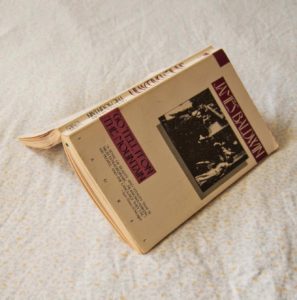So here is the top ten lessons I gleaned from my first reading:
2. One must find courage to do that which one wishes to use one’s time for: When Santiago understood what his dream was, he had to muster up the courage to break the news to his parents. It crushed them and though his father tried to convince him to stay in their village and become a priest, Santiago’s desire was so strong that he had a counterargument for every reason his father had on why he ought to stay.
4. Time is essential: One ought to learn to appreciate the significance of the present for a richer tomorrow. One ought to be aware of time in order to mindfully utilize it. Also, in all of time, choices have to be made. Even if the decision is to do nothing.
5. One must always work towards expanding one’s comfort zone: First Santiago broke his parents hearts, that must not have been easy. He then had to leave the comfort of his village and bed for a rougher life of traveling as a shepherd. To go further, he had to give up his life as a shepherd which was by then comfortable, and sell his sheep which were like family to him. Then he had to leave Spain for Egypt. From one continent to another, from one country to another. Every time Santiago became comfortable in a circumstance that was once unfamiliar, he left it behind and challenged himself in a new situation of discomfort. In so doing he not only fulfilled his dreams, he got more than he ever dreamt of.
 |
| via |
6. It pays to be observant: Learn of the nature of the people and things in your environment. It gives one a powerful place in communication and understanding of how things work. At the crystal shop, his observance of potential customers helped him to provide a solution to their needs and in so doing increased business for the crystal merchant. Just as his observance of the shopkeeper taught him how to interact with him for both of their benefits.
8. The closer one gets to fulfilling a dream the harder it becomes. Do not give up: Santiago gets beaten up in the desert when he thought he had finally reached his destination. In that instance the question how much life is worth in comparison to a dream is answered. Because he chose life, Santiago discovers that the location of the treasure he is searching for is not where he thought it was. He had come all the way to to actually learn that where he came from was the real location of the treasure he sought. Through the narration of a dream of one of the men who had beaten him––through pain––Santiago was rewarded. But the reward came through disclosing his dream. It allowed the bandit to also share his own dream which held the true location.
9. Above all, one must enjoy the journey and be open to what comes along: By not just focusing on the treasure he was after, Santiago picked up many useful lessons, friends, and love on his way to finding it.
10. After one has fulfilled one’s dream, they must not forget those who were of help. Nor should they forget the promises made along the way. Hence Santiago goes back and pays his one tenth to the Gypsy woman.
What makes The Alchemist really beautiful is that so much is compressed in so little and in such a simple way that it is almost ambitious and ridiculous. But it seems to suggest itself as a metaphor of that which it commends. I suppose one could say the general message is that when one follows one’s heart, one is in accordance with nature and in so doing finds treasures in life. In other words, one makes gold out of nothing. In that when a life has a passionate goal, through time and great perseverance, one is capable of making reality out of dreams.
Got your own lessons to share? Please let me know in the comment section.
Jane Odartey



I really enjoyed The Alchemist. I need to re-read it yearly! And I like your idea that the apparent simplicity of the book could be a metaphor in itself.
Jhaneel, thank you for the comment. 🙂 I agree, it would be really good to re-read The Alchemist yearly. I will aim to do the same.